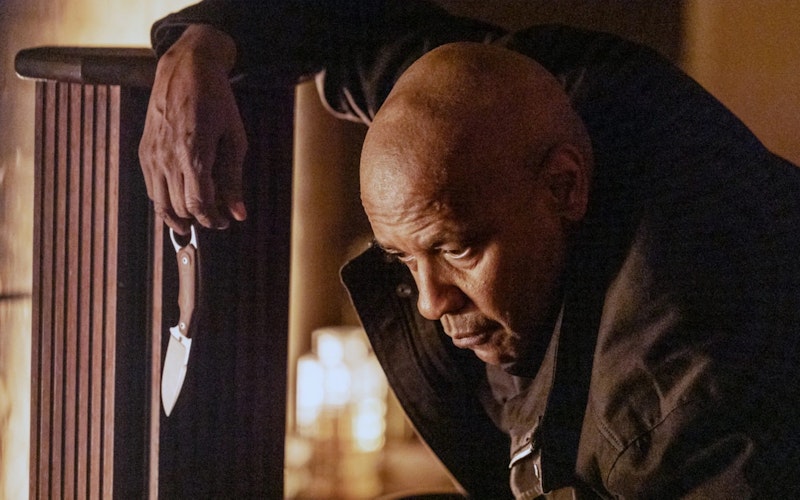
Movies
Yearning for Peace in The Equalizer 3
In The Equalizer 3, Robert McCall (Denzel Washington) evolves from relentless assassin to purposeful protector. Fans of the series can appreciate his completed character arc, as he takes his place among the great movie defenders of peace who only use violence when absolutely necessary (think Gandalf, Captain America, Star Wars' Queen Amidala, and even John Wick).
In the opening scene, a camera pans through a mansion in Italy with bodies strewn about. The visual style of director Antoine Fuqua mostly withholds how the carnage occurred and instead focuses on who still stands: our hero, veteran military man Robert McCall (Denzel Washington), and his few remaining adversaries. McCall offers a peaceful resolution, which is rejected. Though this movie earns its R rating due to its violence, they are in heavy contrast with the quieter moments, which were rare in the first two films in the trilogy. Here, violence isn’t McCall’s first choice. In his later years, McCall is a protagonist yearning for peace after living a life of violence.
Unfortunately, McCall’s enemies are not necessarily ready for peace. He is severely injured early in the film, appearing to be mortally wounded. Here, we trade the “blood and guts” style expected of the franchise for a reflective, healing journey. We follow McCall as he is eventually nursed back to life in a small town outside of Sicily. This small town allows him to imagine what living a peaceful life of harmony could be like. The community is very close-knit and connected. Everyone seems to know each other's names; the store owners are all local people who try to be kind to their community. It’s an example of what godly living can look like. While McCall's backstory is largely a mystery, it is clear that he is not accustomed to this kind of life. The familial culture makes him feel like he can find a new home here, a place of peace.
It doesn’t take long for McCall to notice that this peace is being threatened by a local mafia-type group called the Camorra. The loud rumbling of their motorcycles interrupts the tranquil atmosphere of the town. Fuqua expertly uses sound design in these scenes to show the contrast between the stillness of the town and the aggression of the gang. The Camorra abuses the local business owners and forces them to “pay up” or face the consequences. While the gang’s oppression is public and pervasive, the town is too helpless and meek to do much more than passively observe as innocent bystanders. McCall, however, struggles to just sit back and watch evil have its day. He decides to become an emissary of God, as God is described in the Good News translation of Deuteronomy 32, one who can equalize the scales.
In his later years, McCall is a protagonist yearning for peace after living a life of violence.
In a memorable scene, McCall stands up for a local officer who is interrupted by the Camorra while he is eating with his family. McCall deliberately, yet calmly, inserts himself into the fray and makes a public mockery of the gang. After being ousted from the restaurant, members of the Camorra plan to murder McCall, but he easily gets the upper hand and executes them in the street. This scene serves as the beginning of the Equalizer’s defense of his new place of refuge, but it is certainly not the last. (Spoilers ahead.)
In response, the mafia violently seeks retaliation on the one who is responsible for the death of their members. When they threaten the safety of the community to get answers, McCall willingly gives himself up. In a not-so-unlike Christ manner, he emerges from the shadows armed and powerful, but he does not come out guns blazing. He comes out in a state of surrender, offering himself for the peace of the city. He lays his arms down and gives himself up to his fate. McCall is ready to die for what he believes in—but the community stands up! They don’t let evil have its day. Through protection and loving sacrifice, we see this community transform.
As God is the defender of our peace and protector of our community, he wants to see us transformed as well. I find this movie calling us to not be innocent bystanders, but a community that would be willing to sacrifice for each other. Jesus, the one who gave his life for us, said this another way: “Love each other as I have loved you.” Sacrificially. In a world that often favors the ruthless, we are called to not conform, but to be transformed in a way that mirrors Jesus’ sacrificial love. In this analogy, we are the town and McCall is the almost Christ-like figure, desperate to protect our peace.
Topics: Movies